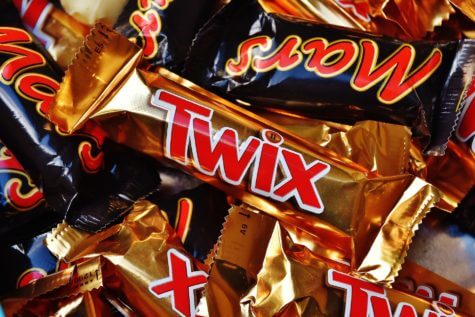CHICAGO — It’s not always easy to go for the pack of sliced apples in the vending machine when there are rows of Snickers and Kit Kats staring you in the face. A new study, however, finds a few extra seconds to reconsider your choice may be all you need to pick a more nutritious option.
Researchers at Rush University discovered that time delays can help encourage vending machine consumers to eschew less healthy options.
“Having to wait for something makes it less desirable,” says Brad Appelhans, PhD, clinical psychologist at the Rush University Prevention Center and lead investigator of the study, in a university news release. “Research shows that humans strongly prefer immediate gratification, and this preference influences choices and behavior in daily life.”

The research team developed working prototypes of a physical vending machine and an accompanying software named Delays to Improve Snack Choices (DISC). The DISC platform integrated settings that essentially made it less enticing to pick unhealthy snacks.
“We wanted to see if we could use this preference for immediate gratification to improve people’s vending machine snack choices,” explains Appelhans.
The team also sought to examine how habits would change if taxes were imposed on unhealthy treats and discounts added to the healthier ones.
During the study’s duration — from June 2015 to August 2016 — six different settings were used on three machines.
The first setting made no interventions to influence snack decisions; the second setting put a 25-second time delay on less-healthy snacks; the third and fourth settings imposed a 25-cent discount and 25-cent tax on healthy and unhealthy snacks, respectively; the fifth setting both put a 25-second time delay on less healthy snacks and gave a 25-cent discount on healthier snacks; and the last setting imposed both a 25-second time delay and 25-cent tax on unhealthy snacks.
Purchases of healthy snacks increased whenever a time delay, a 25-cent discount on healthy options, or a 25-cent tax on unhealthy snacks were imposed.
To be sure, patrons were made aware of the discounts and penalties associated with buying with certain snacks.
A variety of factors were used to determine the healthiness of a snack, including its amount of calories, fat, sugar, and dietary fiber.
Since vending machines “are not going anywhere any time soon, this new vending machine system could be an effective and financially viable strategy that can shift individuals’ choices towards healthier options,” argues Brad Appelhans.
Considering how their DISC platform didn’t impact overall sales, the researchers feel as if similar platforms that restrict or discourage junk food purchases might still hold value to venues that house vending machines.
“There is a major need for new dietary intervention strategies that combat obesity-promoting factors in the environment,” says Appelhans. “Obesity and poor diet are strong risk factors for heart disease, stroke and diabetes.”
The study’s findings were presented at the Society of Behavioral Medicine’s Annual Meeting & Scientific Sessions in late March.
